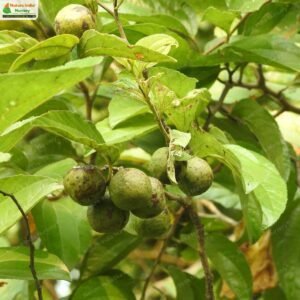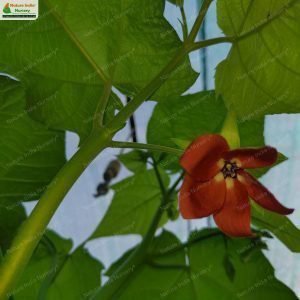Ziziphus xylopyrus, commonly known as the Woody Fruited Jujube or Kat Ber, is a thorny, evergreen shrub or small tree that can grow up to 12 meters in height. It has a rough, greyish-brown bark and spiny branches. The leaves are simple, alternate, and ovate to elliptic in shape, with a glossy green upper surface and a paler underside. The tree produces small, greenish-yellow flowers in clusters, and its fruit is a woody, globose drupe that turns brown when mature.
This plant is native to the Indian subcontinent, including countries like India, Nepal, Bangladesh, and Sri Lanka. It thrives in tropical and subtropical climates, often found in dry, arid regions, scrublands, and along riverbanks. The tree’s adaptability and hardiness make it a valuable species in its ecosystem.
Habitat
Ziziphus xylopyrus is native to the Indian subcontinent, thriving in tropical and subtropical climates, often found in dry, arid regions, scrublands, and along riverbanks.
Planting and Care
-
Propagation: This can be propagated from seeds. Seeds should be sown in well-drained soil and kept moist until germination.
-
Soil: Prefers well-drained, sandy loam soil but can tolerate a range of soil types, including poor soils.
-
Watering: Requires regular watering during the initial stages of growth but is relatively drought-tolerant once established.
Additional Information
-
Wildlife Significance: Provides shelter and nesting sites for various bird species. The small flowers attract numerous pollinators, and the fruits are consumed by birds and small mammals, which help in seed dispersal.
-
Economical Values: The wood is used for making furniture, tools, and as firewood. Various parts of the tree are used in traditional medicine to treat ailments such as digestive issues, respiratory disorders, and skin conditions.










